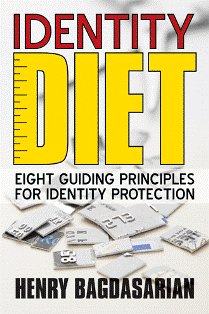|
Dumpster Diving
During Earth Day, I noticed some activists were dumpster diving to locate and remove recyclable items from trash bins as I was watching the live celebration on TV. This activity reminded me again of the importance to eliminate all readable documents and objects containing personal information from trash bins, especially, the blue recycle bin containing paper documents and plastics. Diving into dumpsters looking for important items is not limited to Earth Day. Many identity fraudsters continue to use this method to obtain personal information that could be used to commit identity fraud. Not only dumpster diving can help with information gathering for fraud purposes, it can also be used for spying on companies and neighbors. One of the internal audit activities at the credit card company where I previously worked was to dive into dumpsters as part of the internal controls testing and verify that payment slips containing cardholder information were not thrown into the trash bin without being shredded after the payments were processed and entered into the system. Not only were we able to find documents containing cardholder personal information, we also sometimes located consumer checks that were mistakenly thrown away without being processed. By the way, cardholder checks with blank "pay to the order of" lines could have also been thrown in the trash bins by malicious employees on purpose to later collect the checks and deposit into their own accounts once the bins are placed outside for collection. This would have eliminated fraud detection through random employee search upon exiting the business premises. As we understand the risks of dumpsters diving and its role in planning identity theft and executing identity fraud, we have to be very careful about the documents and objects containing personal information that we throw away, also considering where we throw away, how we throw away, and when we throw away. Let’s explore the four areas of risks. First, we have to separate the documents and objects that contain personal information from the rest of our trash for special handling. Such items may include expired credit cards, account statements, laptops and removable storage devices such as USBs and iPods. Once separated, these items must be handled with special care. Second, we should not do the obvious, which might include throwing these items in the recycle bin where fraudsters will be more likely looking for personal information. Most people throw away their paper documents along with the rest of the recyclable items when they religiously practice recycling. It’s better to throw away these important documents and objects where they’re least expected and desired to be searched for and found such as in the food trash bin along with the expired tuna. Third, it’s extremely important to make the items unreadable by fraudsters. For example, shred the plastic credit cards or the account statements before throwing away. Never dump your laptop, USB or iPod in a recycle bin and before making sure the hard drives have been rendered unreadable. Depending on the object, make sure they become unreadable before throwing them away so that even when they’re stolen, they are useless. Lastly, it’s very important to consider when you place your trash bins outside for pickup. The less window of opportunity you provide to dumpster divers, the more protection you provide for your personal information that you have dumped in the trash bins. Always place the trashcans for pickup at the last possible moment for maximum identity protection. Read this article on trash collection after reading about "dumpster diving". |